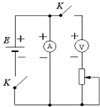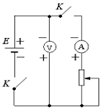问题
单项选择题
违反《海上交通安全法》第十六条的规定,大型设施和移动式平台的海上拖带,未经船舶检验机构进行拖航检验,并报海事管理机构核准,且属于经营活动中的违法行为,有违法所得的,依照《海上交通安全法》第四十四条的规定,处以的行政处罚是()
(1)对船舶、设施所有人或经营人处以违法所得的3倍以下、最多不超过3万元的罚款;
(2)对船长、设施主要负责人处以处以违法所得的3倍以下、最多不超过3万元的罚款;
(3)扣留船长、设施主要负责人船员职务证书12个月至24个月直至吊销船员职务证书。
A、(1)(2)
B、(1)(3)
C、(2)(3)
D、(1)(2)(3)
答案
参考答案:D




